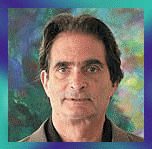 Let’s start with an extreme case. A case that has been roiled in emotion for decades. A case that triggers people into making all sorts of comments.
Let’s start with an extreme case. A case that has been roiled in emotion for decades. A case that triggers people into making all sorts of comments.
At quora.com, there is an interesting Q and A. The subject is the Nazi holocaust.
The question is: Why is holocaust denial a crime in some countries?
One answer is offered by Olaf Simons, who states he is an ‘historian at the Gotha Research Centre.’ Here is an excerpt:
‘Anyone who tells you it [the holocaust] is ‘not real’ (because he has found something to support his doubt) is manipulating you with a political agenda.’
That’s quite a far-reaching assertion. It’s obvious that a) someone might come to the conclusion that the holocaust didn’t happen and b) he has no political agenda. Whether that person’s conclusion about the holocaust is true or false is beside the point. And even if that person did have a political agenda, why should his comments about the holocaust be suppressed?
Olaf Simons takes his argument further: ‘Holocaust denial is different. It is telling you that all the historical victims are actually cheating the public. It denies families the right to mourn the loss of grandmothers and grandfathers, mothers and fathers, friends and loved ones. It is an attempt to deny Jews the right to remember their collective history – and usually the right to have a Jewish state as a consequence of this, their history. All the Holocaust denier has to do is claim his right of free speech and tell the Jew, who has lost his family, that he is simply a liar. That is the point where we as societies must intervene…’
This post was published at Jon Rappoport on April 18, 2017.

 Follow on Twitter
Follow on Twitter
Recent Comments